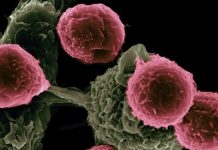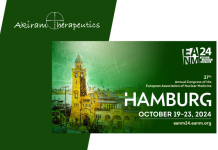
Is aspartame harmful to humans? The World Health Organization’s (WHO) verdict has left consumers thoroughly confused.
The popular non-sugar sweetener, which was on the radar for being carcinogenic for humans, has been classified as a possible carcinogen by WHO’s cancer arm, the International Agency for Research on Cancer (IARC), citing ‘limited evidence’ for carcinogenicity in humans. The WHO/FAO Joint Expert Committee on Food Additives (JECFA), on the other hand, reaffirmed the acceptable daily intake of 40mg/kg body weight.
The two bodies conducted independent but complementary reviews to assess the potential carcinogenic hazard and other health risks associated with aspartame consumption. This was the first time that IARC has evaluated aspartame and the third time for JECFA. The assessment report was released on 14 July by the IARC and the World Health Organization (WHO) and the Food and Agriculture Organization (FAO) Joint Expert Committee on Food Additives.
“Cancer is one of the leading causes of death globally. Every year, 1 in 6 people die from cancer. Science is continuously expanding to assess the possible initiating or facilitating factors of cancer, in the hope of reducing these numbers and the human toll,” said Francesco Branca, director of the department of nutrition and food safety, WHO. “The assessments of aspartame have indicated that, while safety is not a major concern at the doses which are commonly used, potential effects have been described that need to be investigated by more and better studies.”
IARC classified aspartame as possibly carcinogenic to humans (Group 2B) on the basis of limited evidence for cancer in humans (specifically, for hepatocellular carcinoma, which is a type of liver cancer). There was also limited evidence for cancer in experimental animals and limited evidence related to the possible mechanisms for causing cancer.
JECFA concluded that the data evaluated indicated no sufficient reason to change the previously established acceptable daily intake (ADI) of 0–40 mg/kg body weight for aspartame. The committee, therefore, reaffirmed that it is safe for a person to consume within this limit per day.
“The findings of limited evidence of carcinogenicity in humans and animals, and of limited mechanistic evidence on how carcinogenicity may occur, underscore the need for more research to refine our understanding on whether consumption of aspartame poses a carcinogenic hazard,” said Mary Schubauer-Berigan of the IARC monographs program.
The IARC and JECFA evaluations of the impact of aspartame were based on scientific data collected from a range of sources, including peer-reviewed papers, governmental reports, and studies conducted for regulatory purposes. The studies have been reviewed by independent experts, and both committees have taken steps to ensure the independence and reliability of their evaluations.







